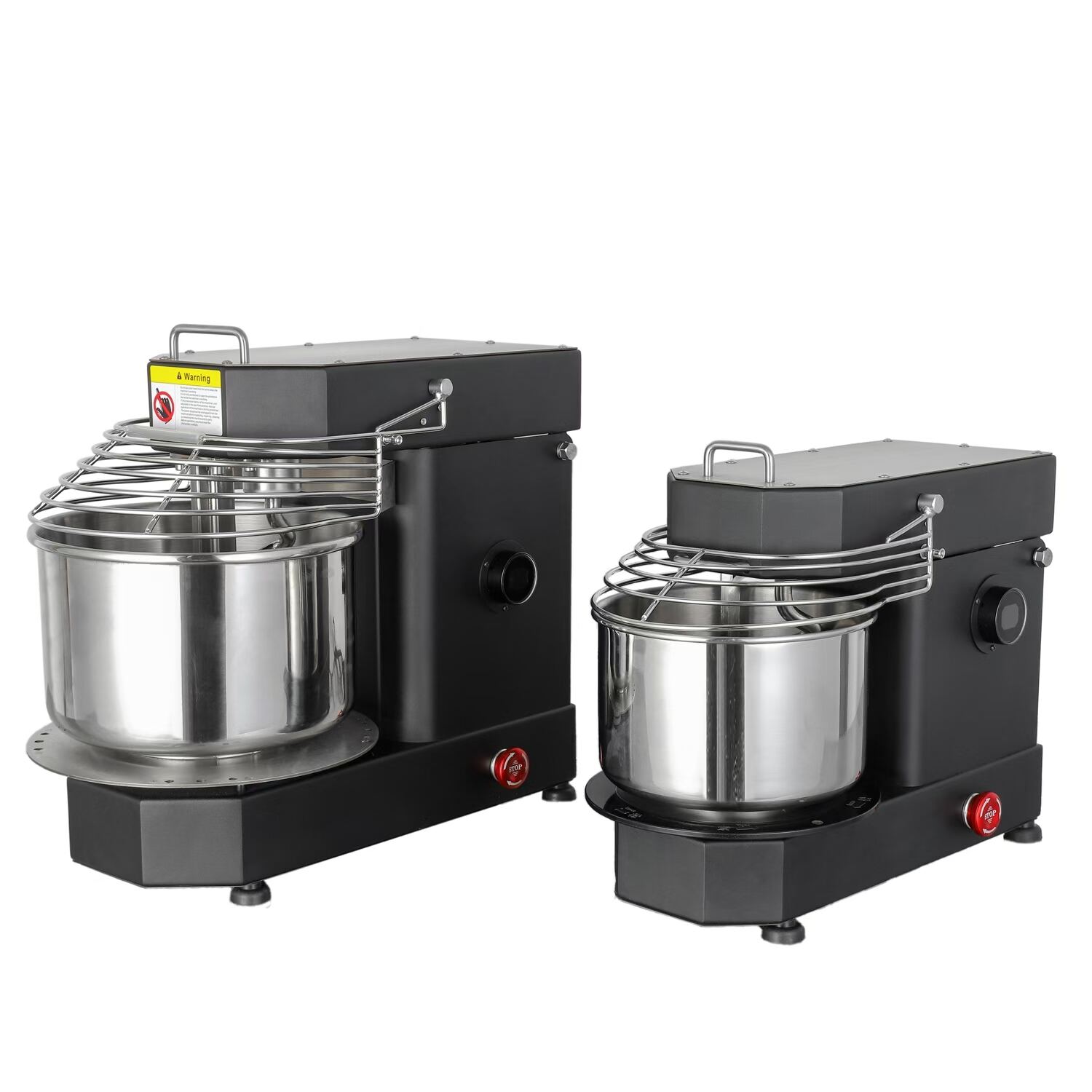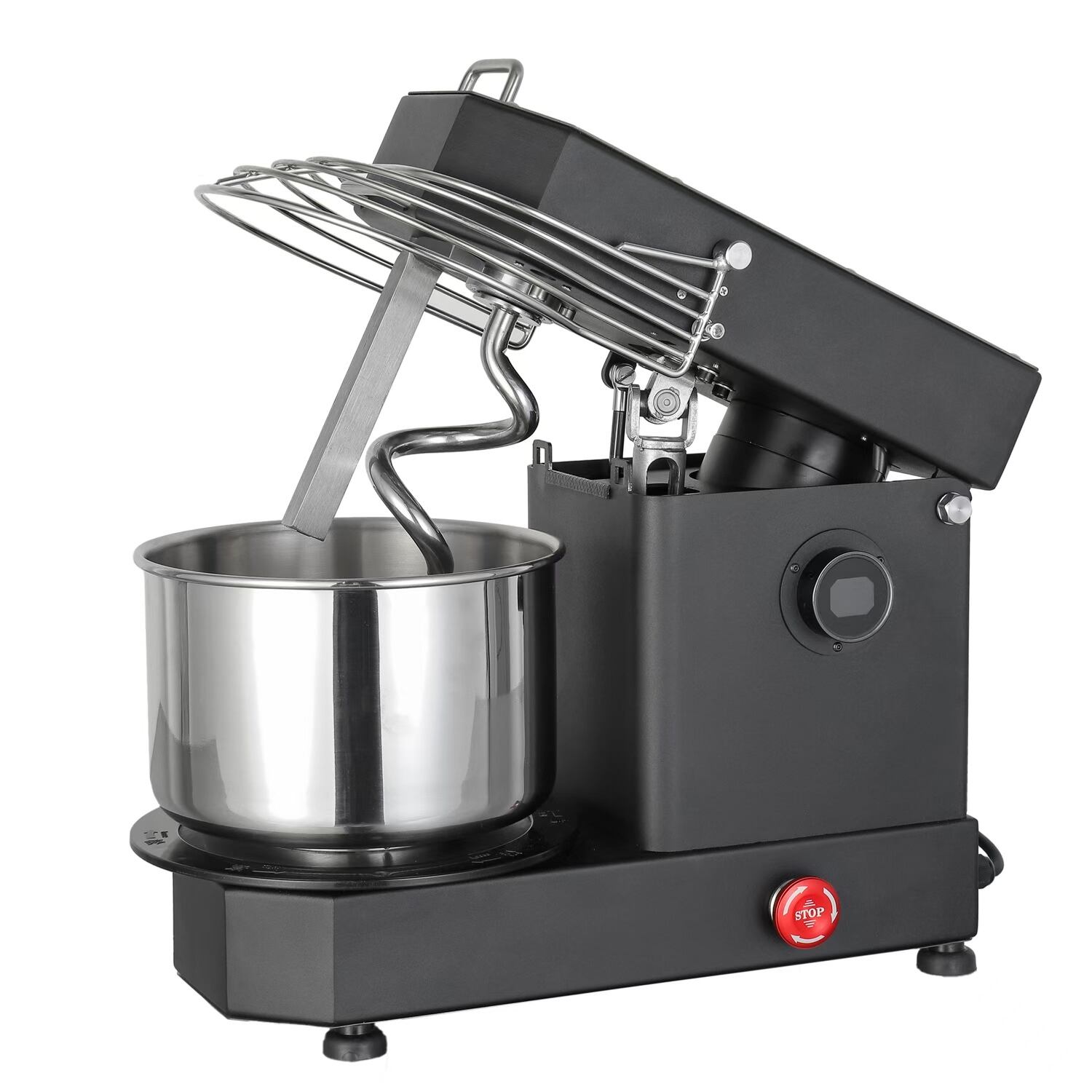The Value of Investing in a Commercial Bakery Mixer for Your Business
In the competitive world of bakery operations, the ability to streamline production while maintaining high-quality standards is crucial. A commercial bakery mixer can provide significant advantages to your business by improving efficiency, consistency, and output. Whether you're a small artisan bakery or a large-scale commercial operation, investing in the right mixer can boost your production capacity, reduce labor costs, and help maintain the consistency your customers expect. This guide explores the various benefits and factors to consider before purchasing a commercial bakery mixer.
Why a Commercial Bakery Mixer Is Essential for Bakeries
A commercial bakery mixer plays an indispensable role in modern bakery production. The mixer not only increases efficiency but also ensures that products are consistently of the highest quality, helping your bakery stand out in a crowded marketplace.
Improved Efficiency and Time-Saving
Running a bakery requires a great deal of multitasking, and time is often of the essence. Commercial mixers enable your bakery to process larger quantities of dough, batter, or icing in less time compared to manual mixing. This time-saving translates into the ability to produce more items, meet customer demand, and reduce the workload for your staff. With quicker mixing times, you can manage busy periods, especially during peak seasons, more effectively, improving overall productivity and allowing your bakery to focus on other critical tasks like decoration, baking, and customer service.
Consistency in Product Quality
For any bakery, consistency is paramount. Customers return when they know they can expect the same great taste and texture with each visit. A commercial bakery mixer ensures uniform mixing, which is essential for maintaining consistent quality across different batches. Whether you're making delicate cakes or hearty bread, the even distribution of ingredients guaranteed by a commercial mixer ensures that every product meets your bakery's high standards. This consistency is especially important for bakeries that pride themselves on providing premium, handcrafted products that need to meet strict quality controls.

Factors to Consider Before Investing in a Bakery Mixer
Size and Capacity of the Mixer
A key consideration when selecting a bakery mixer is its size and capacity. The size of the mixer will directly impact your bakery's production capabilities. If your bakery produces small batches of premium goods, you might not need a high-capacity model. However, larger bakeries or those expecting growth should consider a mixer that can handle larger batches more efficiently. Ensure that the mixer you choose is capable of scaling up as your business grows, without compromising on performance or quality.
Types of Mixers Available
Not all bakery mixers are the same. There are several different types of mixers designed for specific tasks, and selecting the right one for your needs is essential for improving workflow. Planetary mixers, spiral mixers, and horizontal mixers are the most common types, and each is suited to different applications.
Planetary Mixers: These versatile machines are ideal for a variety of bakery products such as cakes, cookies, and icings. Their design allows for efficient mixing with minimal effort, making them a great all-rounder for bakeries with diverse product offerings.
Spiral Mixers: Perfect for heavy doughs like bread or pizza dough, spiral mixers use a rotating arm that kneads dough more effectively. The spiral mixing action ensures consistent gluten development, which is essential for producing bread with the perfect texture and crumb.
Horizontal Mixers: Often used for large-scale operations, horizontal mixers are great for dry ingredient mixing or mixing heavy batters. These mixers are particularly useful when making large batches of items like muffins or large bread loaves.
Budget Considerations
While it’s tempting to go for the cheapest option, a bakery mixer is a long-term investment. A high-quality, durable commercial mixer might have a higher upfront cost, but it will offer greater value over time due to its durability, increased efficiency, and consistent output. Look at the long-term cost savings, such as reduced labor costs and fewer product defects, when deciding how much to spend. Also, consider the potential increase in sales that a more efficient mixer could bring, particularly during peak periods.
The Long-Term Benefits of a Bakery Mixer
Reduced Labor Costs
Labor costs are a significant portion of any bakery's expenses. Manual mixing requires multiple staff members, each of whom can only handle small batches at a time. A commercial mixer can reduce the number of staff required for mixing duties, freeing up your team to focus on other essential tasks. In the long run, this reduction in labor costs can significantly improve your bakery’s profitability, making the initial investment worthwhile.
Increased Production Capacity
With a commercial bakery mixer, your bakery can produce larger quantities of dough or batter at once. This increased capacity helps you scale production to meet customer demand, especially during busy seasons or special promotions. Whether you need to produce more items for a large event or increase your output for daily sales, a bakery mixer makes scaling up operations more feasible without compromising quality.
Improved Workplace Safety
Baking can be a physically demanding job. Manual mixing often involves heavy lifting, repetitive motions, and the risk of injury. A commercial mixer reduces the physical strain on your staff and improves workplace safety. Additionally, most commercial mixers come with safety features like automatic shut-offs, protective guards, and non-slip surfaces, ensuring a safe working environment for your team.
FAQs
How can a bakery mixer help my bakery?
A commercial bakery mixer can streamline your production process by saving time and improving consistency. With the ability to mix larger batches faster and more efficiently, it can increase your bakery’s productivity while ensuring that every product is of the highest quality.
Are commercial mixers suitable for small bakeries?
Yes, there are many commercial mixers available in various sizes, including models suitable for smaller bakeries. Smaller models can still handle significant batch sizes, and many are designed to be compact and easy to store, making them perfect for bakeries with limited space.
What types of baked goods can a bakery mixer be used for?
A commercial bakery mixer can be used for a wide range of baked goods, including bread, cakes, muffins, cookies, and pastries. The type of mixer you choose will depend on the types of baked goods you produce most often, with some mixers being better suited for heavy doughs while others work best for lighter batters.
How do I maintain my commercial bakery mixer?
To ensure your mixer runs smoothly for years to come, it’s essential to perform regular maintenance. Clean the mixer thoroughly after each use, lubricate the moving parts as per the manufacturer’s guidelines, and check for signs of wear and tear. Regular maintenance will help your mixer perform at its best and extend its lifespan, saving you money on repairs or replacements down the line.

